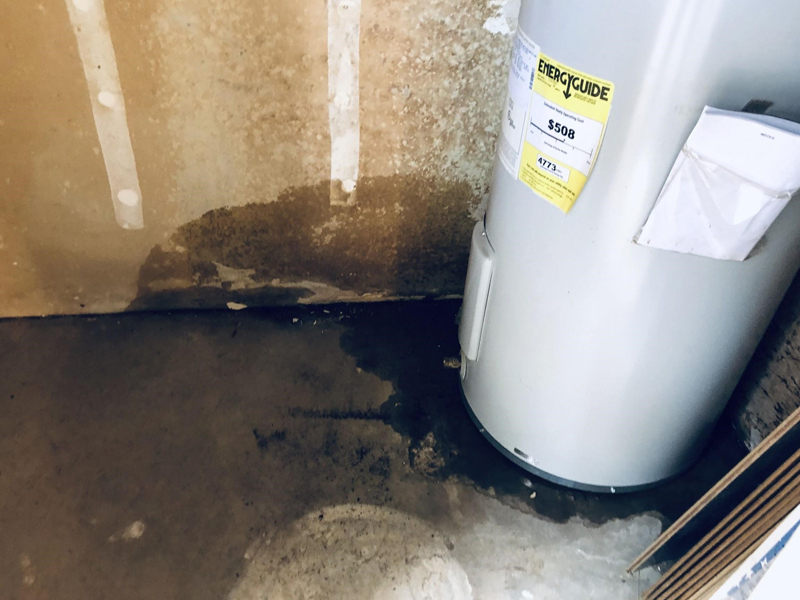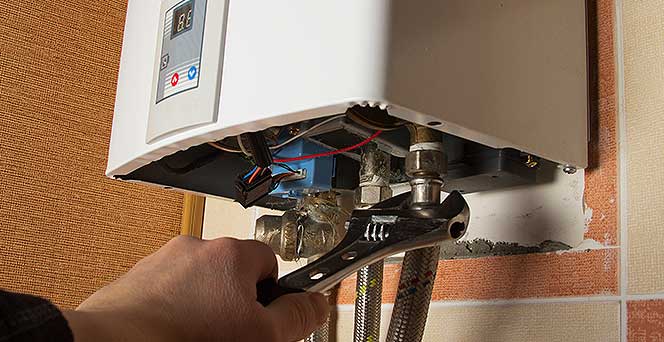Essential Recommendations for Residential Property Owners Dealing with Malfunctioning Water Heaters
Essential Recommendations for Residential Property Owners Dealing with Malfunctioning Water Heaters
Blog Article
This great article listed below in relation to How to Avoid a Broken Hot Water Heater is really enlightening. Don't bypass it.

Whether it is located in the basement or a separate space, broken water heaters can trigger anxiety. A basic device holds 80 gallons, so an over night leakage will cause a flood. This leads to significant home damages with soaked wall surfaces and floors. Besides, having no warm water supply is also troublesome. If you are dealing with these problems, make note of the following:
Call the Plumber
After doing the very first 2 safety and security actions, you need to call your plumber to find today to deal with a fractured water heater. Remember that your device will not simply conk out significantly overnight. There are usually indicators that your aging water heater has debris accumulation in the inside. Bear in mind of the following:
Instead, as quickly as you spot these indicators, have a professional come to check your water heater storage tank. Typically, water heating units have a life-span of regarding 8 to 12 years.
Cut Off the Cold Water Supply
Cut off the containers faucet water supply from the source. This goes from your main water line into the storage tank. When your storage tank remains in good condition, the cold water quits filling when the container is complete. Because it is leaking, the water will proceed to flow. Shut the valve located on top of the heating system. Rotate this clockwise to shut it off. You should turn off that major water supply line outside your residential property if you can not find it or reach it.
Turn Off Power Source
Before calling the plumber, shut down a gas water heater by turning the temperature level dial. This is usually found at the top of the thermostat. If you have a design that works on electrical power, switch off the circuit breaker. This will stop electrocution, specifically if there is a leakage as water is a conductor. Typically, the heating element shuts down when the water hits a certain temperature level. However with a busted container, it may malfunction. Cutting it off guarantees you stay secure.
Tidy up Property
After calling the plumber, document damages by remembering and photos so you can assert your house owner's insurance. From there, begin the immediate cleaning. Take out any type of important items to prevent further soaking. Get rid of any kind of standing water to protect against mold and mildew and mold development. Use that to drain pipes the water if you have a completely submersible water pump. Otherwise, the conventional bucket technique will likewise function. Try to wipe out whatever, consisting of wall surfaces as well as baseboards. Keep them running to maintain air distributing if you have an electrical fan and dehumidifier. This will certainly help deter mold and mildew growth.
Remember, if you discover any kind of issues with your hot water heater, call the pros as soon as possible. You can not take this trouble lightly because a malfunctioning thermostat can elevate water temperature to a precariously high degree, bring about accidental burns. A damaged heater pressure relief valve can likewise cause an explosion. For ideal results, get a yearly check so your device gets examined, cleaned up, drained, and also re-filled, assuring optimal efficiency.
After doing the very first two safety and security actions, you need to call your plumber to come right away to fix a fractured water heater. Rather, as soon as you identify these signs, have actually a professional come to evaluate your water heating unit container. Before calling the plumber, shut off a gas water heating unit by transforming the temperature dial. If you have a submersible water pump, make use of that to drain pipes the water. Keep in mind, if you see any issues with your water heater, call the pros right away.
Is My Water Heater Broken?
The Water Heater is Old
No appliance will last forever. This includes a home’s water heater. During its lifespan, residents are going to face a situation where a new water heater installation will be necessary. The biggest problem with this is that most people are not sure when their water heater expires. Not knowing this can lead to serious risks if the unit begins to act up due to old age.
Most makes and models of water heaters will last between eight and 10 years. While 10 years is the age when water heater replacement is highly recommended, the need to replace the unit may occur before this time or after. If the unit doesn’t show any symptoms of a problem, it is a good idea to replace it at the 10-year mark (from the manufacture date).
Some of the symptoms that indicate a new unit is needed include rusting, leaks, noises, and a failure to heat up the water. Also, note that not all units have a 10-year life expectancy. The main exception to this rule is that a gas unit will last for six to eight years.
Rusty Heater Inlet Valve or Water
While steel is the strongest material on earth, it does have a weakness – rust. If corrosion occurs on a steel surface, it will begin to spread and eat through the steel in certain areas. On water tanks and pipes that are made of steel, rust is a warning sign of an impending leak.
The issue for many is trying to figure out if the rust is coming from the water heater or the pipes that lead to the faucet. If rust is seen, it is a clear indication that water heater service from the professionals is needed.
If rusty water appears out of the faucets in the bathtub or sink, it likely means a rusty water heater. If there is rust near the water inlet or the pressure relief valve, rust has likely developed inside the tank. If tap water appears rusty, it may be an issue with the pipes.
Strange Sounds from the Water Heater
Are there strange sounds coming from the tank? As a water heater gets older, rumbling noises may develop and get louder and louder as the water in the tank heats up. In homes where large amounts of hot water are used, the issue is likely going to be even more obvious when more serious issues arise. If there is a strange or loud noise coming from the unit, it is probably because of sediment buildup. A good way to remedy this problem is by flushing the heater. If this does not work, then a new unit may need to be installed.
Leaks
As a water heater gets closer to the end of its useful life, there is a higher chance there will be water around the tank. If there is water, this usually means leaks are occurring. Based on where the unit is located in the home, a leak may result in serious property damage.
Leaks are usually caused by expansions in the metal tank. The expansions occur as time passes and as the inside body of the tank is exposed to multiple heating cycles per day. When a fracture forms, the gap will be slight enough to hold the water in; however, in more serious situations, this will not be the case. If the tank is idle, the water will not leak but when the metal expands during each heating system, small amounts of water will get through the gap.

Do you like reading up on Maintaining & Draining a Water Heater? Place a comment down below. We would be delighted to hear your opinion about this blog post. We are looking forward that you visit us again soon. Sharing is caring. Helping people is fun. We love reading our article about Broken Water Heaters.
Best solutions here. Report this page